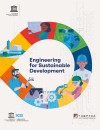UNESCO Montevideo and Chequeado have published a document so that the region has key input and seeks to mitigate the negative effects of the infodemic phenomenon.
The COVID-19 pandemic dramatically expanded the world's news production. At the same time, in most countries in recent months, the use of social networks has increased significantly and has become a huge platform for the dissemination of coronavirus-related material, which is not always true. The use of WhatsApp has increased in most countries, according to the Digital News Report published by Reuters in June 2020, and more than half of those surveyed said they used some kind of virtual community to exchange information.
This scenario means that the phenomenon of disinformation increases and, with it, also increases the risk of false material remaining in the population. A publication was prepared by UNESCO Montevideo and Chequeado entitled Combatir la infodemia en América Latina y el Caribe to help mitigate the impact of false information, which aims to serve as a feedback so that citizens throughout the region have accessible and systematised material to recognise unverified content.
"With this document we seek to share the experience accumulated by the more than 30 organizations that are part of the LatamChequea network and that since the beginning of the pandemic, have been working together against disinnformation to deliver quality information to our communities", said Laura Zommer, Executive and Journalism Director of Chequeado.
In order to counter disinformation related to the pandemic in Latin America and the Caribbean, the intent of this document is to present concepts and recommendations. It can also be used as an instructional material to work with students on improving critical thinking, or as a reference input for journalists concerned about coronavirus disinformation circulating. It is also helpful as a reference for those who are interested in investigating the region's infodemic characteristics and strategy.
"False information or misinformation moves faster, goes further and reaches many more people than the truth. The COVID-19 pandemic again draws attention to the need for multi-stakeholder participation in the dissemination of validated information, espcially in times of crisis", said Lidia Brito, UNESCO Science Regional Director for Latin America and the Caribbean.
This document will be translated into other languages of the region, including English and Portuguese, and will be included in the forthcoming Regional COVID-19 Resource Hub for Fact-Checkers, a European Union funded project, created by UNESCO Montevideo and Chequeado. The platform, which will be the first of its kind in the region, aims to provide resources for different types of audience including journalists and journalists' associations; radio stations and community radio networks; local and regional networks of fact-checkers as well as other target groups such as social media influencers, bloggers and other specific audiences interested in combating the phenomenon of disinformation in the region.
The Hub will allow content to be filtered with different criteria , for example by country of creation, by the medium in which it is contained (for example, whether it is a podcast, a video, a graphic piece or a text) or by the central subject of the content (for example, how the virus is spread, the treatment available, etc.).
About Chequeado
Chequeado is the main project of the La Voz Pública Foundation. We are a non-partisan and non-profit organization dedicated to the verification of public discourse, the fight against disinformation, the promotion of access to information and the openness of data. We have an Education program focused on learning critical thinking tools and an Innovation Laboratory, focused on developing more efficient and agile technological solutions for the checking process.
Visit us: www.chequeado.com
Follow Chequeado on Twitter, Facebook and Instagram.
Press and Communication:
Sandra Venditti: svenditti@chequeado.com
About UNESCO Montevideo
The UNESCO Regional Office for Sciences for Latin America and the Caribbean (UNESCO Montevideo) for seven decades has been working in the region with Governments, Academia, Private Sector and Civil Society contributing to peace through education, science, culture and communication, in order to ensure universal respect for justice, human rights and fundamental freedoms. Also at the Cluster Office for Uruguay, Argentina and Paraguay, three conceptual axes are currently being addressed in an intersectoral manner that encompass the great Latin American and Caribbean challenges to consolidate democracies, promote sustainable and inclusive development and protect and promote human rights for all: democratic governance and justice; socio-environmental resilience; access to knowledge and the right to science.
Visit us: https://es.unesco.org/fieldoffice/montevideo
Follow UNESCO Montevideo on Twitter and Facebook
UNESCO Montevideo Press and Communication:
Analia Matyszczyk: a.matyszczyk@unesco.org






